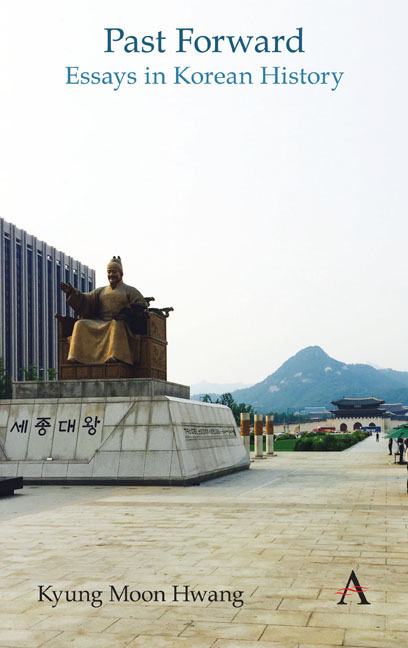Book contents
- Frontmatter
- Contents
- List of Figures
- Foreword
- Chronologies of Korean History
- Themes
- Acknowledgments
- Note on Romanization and Spelling
- Part I Circulating History
- Part II Durable Traditions
- Part III Ancient Remains
- Part IV Dynastic Depths
- Part V Modern Origins
- Part VI Challenges of Nationhood
- Part VII History Makers
- Part VIII External Presences
- Part IX Trials of Modernization
- Part X Gripped by the Past
- 70 Natural Disasters and the False Wisdom of the Past
- 71 Royal Dangers
- 72 North Korea's Alternative History
- 73 Origins of Korea's Political Corruption
- 74 Anti-Communism's Powerful Hold
- 75 Fraudulent Captains of the Sewol Ferry Disaster
- 76 Overcoming Past Hierarchies
- 77 Gripped by the Authoritarian Mindset
- 78 Ways of Living History
- Index
71 - Royal Dangers
from Part X - Gripped by the Past
- Frontmatter
- Contents
- List of Figures
- Foreword
- Chronologies of Korean History
- Themes
- Acknowledgments
- Note on Romanization and Spelling
- Part I Circulating History
- Part II Durable Traditions
- Part III Ancient Remains
- Part IV Dynastic Depths
- Part V Modern Origins
- Part VI Challenges of Nationhood
- Part VII History Makers
- Part VIII External Presences
- Part IX Trials of Modernization
- Part X Gripped by the Past
- 70 Natural Disasters and the False Wisdom of the Past
- 71 Royal Dangers
- 72 North Korea's Alternative History
- 73 Origins of Korea's Political Corruption
- 74 Anti-Communism's Powerful Hold
- 75 Fraudulent Captains of the Sewol Ferry Disaster
- 76 Overcoming Past Hierarchies
- 77 Gripped by the Authoritarian Mindset
- 78 Ways of Living History
- Index
Summary
Efforts to demythologize celebrated historical figures and designated national heroes, and therefore also to resist glorifying history, must include the kings and queens, princes and princesses who populate the popular impressions of the past.
As we all know, monarchies were nearly universal in premodern civilizations. There were differences in the degree to which monarchs wielded their authority, just as there was a wide range in their effectiveness and virtuousness. But all monarchies operated on the basic principle of hereditary political power, and this explains why most rulers were anywhere from bad to terrible, some even evil.
Korea was no different. A distinctive feature of Korea's past was the durability of its ruling families, or “dynasties,” as both the Goryeo and Joseon kingdoms lasted around five centuries each, providing together a millennium of apparent stability. One can suggest that this outcome was due to inherent advantages in the monarchy system, but there were many contributing factors, including sheer luck. Plus, the Goryeo monarchy was not as steady as it seems, for its authority was usurped by both internal (military officials) and external (Mongols) actors for two centuries combined.
Even for the succeeding Joseon dynasty, which began in the late fourteenth century and ruled the country until the turn of the twentieth century, we are left to wonder how many of the monarchs truly came close to greatness. Most Koreans know about King Sejong (“the Great”), and depending on evaluation criteria we might also name kings such as Seongjong, Yeongjo, or Jeongjo. But this would still constitute a small portion of the twenty-seven Joseon monarchs. Again, the odds of any particular king becoming a wise, just and effective ruler were small?no better, really, than the chances of any other person with privileged upbringing.
The legitimacy of all of these kings, in other words, came not from their virtue or skill but from the accident of birth, their status as biological descendants of a dynastic founder who took power through military force. Some of them displayed real talent, but this too was a matter of chance, and the system as a whole depended on the mistreatment of most of the people.
- Type
- Chapter
- Information
- Past ForwardEssays in Korean History, pp. 205 - 207Publisher: Anthem PressPrint publication year: 2019



